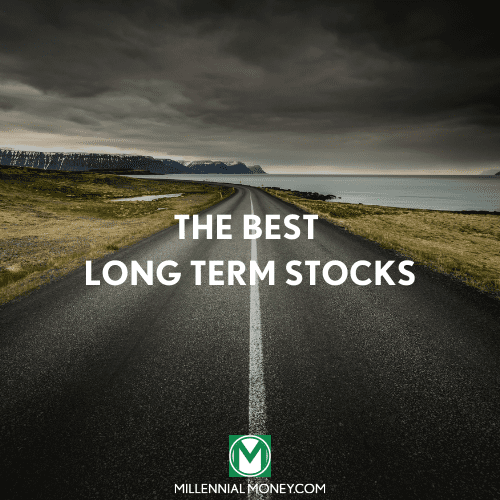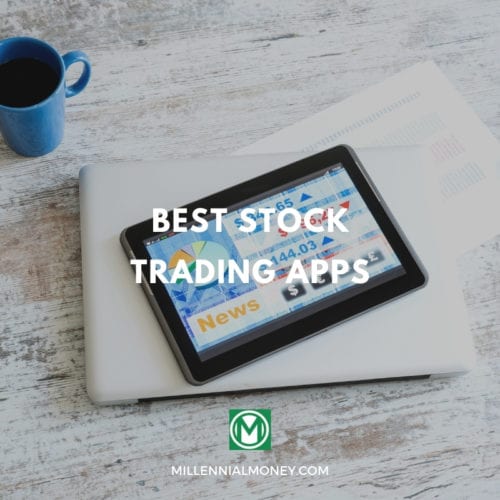Since you’re reading these words, you understand that index funds are a great way to build your investment portfolio, and you know that Vanguard is one of the best there is in the game.
By investing in the right Vanguard index funds, you can park your money with a “set it and forget it” mentality and kick back and see how it plays out over the long term.
Why I Love Vanguard Funds
The road to long-term wealth is full of pitfalls that can impede your progress and set you back if you’re not careful. One of the worst pitfalls facing investors are administrative fees charged by fund managers.
Fees are one of the top wealth killers — right up there with debt and overspending. And unfortunately, they often tend to go overlooked by new investors.
Take my advice: When buying index or stock funds, it’s vital to shop around for plans that will let your money grow without penalizing you. Even a seemingly small annual fee of 1% can wind up costing hundreds of thousands of dollars over the course of several decades.
For this reason, Vanguard funds — with their low fees and competitive long-term performance — have long been viewed as darling growth vehicles for serious investors.
According to Vanguard, their fund expense ratio (the amount used for administrative, management, and other expenses) is 83% lower than the industry average. At the same time, 87% of Vanguard mutual funds and exchange-traded funds (ETFs) have performed better than their peer-group averages over the last 10 years.
It’s the best of both worlds.
Vanguard also received an endorsement from Warren Buffett — and when the Oracle of Omaha speaks, we listen.
“If I were going to put money into an index fund in relatively equal amounts over a 20 or 30-year period, I would pick a fund — and I know Vanguard has very low costs,” Buffettfamously stated back in 2002. “I think that the people who buy those index funds, on average, will get better results than the people that buy funds that have higher costs attached to them.”
Let’s take a closer look at Vanguard’s top funds and explore why they are so popular among long-term investors.
or, skip straight to the best vanguard funds
What are Vanguard Funds?
Vanguard is one of the world’s top investment companies, competing against organizations like BlackRock, Merrill Lynch, Charles Schwab, and Fidelity. Any time you read about Vanguard funds, they’re referring to investments that are sold through the company itself and managed by its employees.
Vanguard offers a variety of investment services, such as Roth and traditional individual retirement accounts (IRAs), annuities, bonds, and simplified employee pensions (SEPs).
However, the company is best known for creating and marketing ETFs and index mutual funds for investors, which track the performance of market benchmarks (like the S&P 500 or the Dow Jones Industrial Average).
ETFs and index funds are often referred to as “passive” investing. It’s the opposite of actively managed investing, where professional managers handpick individual stocks and bonds. Passive investing is typically far more cost-effective, as it does not require a dedicated account manager.
Vanguard currently offers both passive and active investing, with more than 70 U.S.-based actively managed funds available. Ultimately, there is no right or wrong answer when it comes to deciding between passive and active investing. Many investors choose to diversify their portfolio by balancing actively managed funds with index funds and ETFs.
But buyer beware: Actively managed funds often underperform against benchmarked indexes, largely because of their higher fees. This is why the majority of investors typically choose the passive option.
Learn More:
Why are Vanguard’s Expense Ratios So Low?
Beyond the fact that Vanguard offers ETFs and index funds — which are inherently cheaper than managed funds — the company is also large enough that it can achieve greater economies of scale than smaller competitors.
Vanguard now has 30 million customers in about 170 countries and an average expense ratio of just 0.10%. Compare that to smaller and newer competitors that simply can’t match that price.
In addition, Vanguard is owned by its investors, meaning the company operates somewhat like a credit union. Because the company is owned by stakeholders, and not private shareholders, Vanguard is able to keep its prices in check.
11 Best Vanguard Funds
Now that you have a better idea of what Vanguard is all about, we can explore some of the top-performing funds in their portfolio.
- Vanguard 500 Index Fund Admiral Shares (VFIAX)
- Vanguard Dividend Growth Fund Investor (VDIGX)
- Vanguard Total Stock Market Index Fund (VTSAX)
- Vanguard STAR (VGSTX)
- Vanguard Growth Index Fund Admiral Shares (VIGAX)
- Vanguard Total Bond Market Index (VBTLX)
- Vanguard Balanced Index (VBIAX)
- Vanguard Dividend Appreciation Index Fund Admiral Shares (VDADX)
- Vanguard Mid-Cap Index Fund Admiral Shares (VIMAX)
- Vanguard Short-Term Investment-Grade Fund Investor Shares (VFSTX)
- Vanguard Real Estate ETF (VNQ)
Vanguard 500 Index Fund Admiral Shares (VFIAX)
OVERVIEW: VFIAX on Google Finance
- Category: Large Blend
- Asset Class: Domestic Stock- General
- Expense Ratio: 0.04%
- Minimum investment: $3,000
- Distribution Schedule: Quarterly
VFIAX offers exposure to 500 of the largest U.S. companies, across a diverse set of industries, including technology, healthcare, and pharmaceutical stocks (e.g., Microsoft, Apple, and United Health Group). According to Vanguard, its broad diversity across the top US large-cap stocks makes this fund a core equity holding in an investment portfolio. VFIAX is subject to the natural volatility of the US stock index, and comes with an above-average risk factor of four on Vanguard’s five-point scale. But at the same time, it comes with an absurdly low 0.04% expense ratio and has a minimum investment of just $3,000. This is a great option for people who are looking to gain broad market exposure. Take my word for it: You’d be hard-pressed to find a more attractive expansive ratio!
Vanguard Dividend Growth Fund Investor (VDIGX)
OVERVIEW: VDIGX on Google Finance
- Category: Large Blend
- Asset Class: Domestic Stock – General
- Expense Ratio: 0.27%
- Minimum investment: $3,000
- Distribution Schedule: Semi-Annually
VDIGX is also a highly diversified stock, focusing on high-quality companies committed to increasing their dividends. In exchange for the dividend yield, VDIGX also comes with a higher level of risk. However, it’s consistently been one of the better performing Vanguard funds over the last several years. If you are interested in investing in brand-name stocks that have a solid record of dividend payments, but you don’t want to buy individual stocks, this fund is a great option.
Vanguard Total Stock Market Index Fund (VTSAX)
OVERVIEW: VTSAX on Google Finance
- Category: Conservative Allocation
- Asset Class: Domestic Stock – General
- Expense Ratio: 0.04%
- Minimum investment: $3,000
- Distribution Schedule: Quarterly
The Vanguard Total Stock Market Index Fund is nearly 30-years-old and boasts an average annual return of 5.79 since 2000. The fund is diversified across large-cap, mid-cap, and small-cap stocks throughout the entire U.S. equity market. This fund may be appealing to long-term investors looking for a low-cost fund, and broad exposure to the entire US stock index.
Vanguard STAR (VGSTX)
OVERVIEW: VGSTX on Google Finance
- Category: Moderate Allocation
- Asset Class: Balanced
- Acquired Fund Fees and Expenses: 0.31%
- Minimum Investment: $1,000
- Distribution Schedule: Semi-Annually
VGSTX comes with a minimum investment of just $1,000, making it an attractive investment with exposure to 10 actively managed Vanguard funds, including domestic international stocks, as well as U.S. bond funds. VGSTX is made up of 60% stocks and 40% bonds making it a relatively safe investment (although, of course, every investment carries risk). If you’re just starting out as an investor and you’re looking to spend $1,000 somewhere, this might not be a bad place to start. Just don’t expect your account to double overnight.
Vanguard Growth Index Fund Admiral Shares (VIGAX)
OVERVIEW: VIGAX on Google Finance
- Category: Large Growth
- Asset Class: Domestic Stock – General
- Expense Ratio: 0.05%
- Minimum investment: $3,000
- Distribution Schedule: Quarterly
VIGAX is exclusively focused on large-cap growth stocks, and it comes with a very low expense ratio of just 0.05%, making it attractive to investors. However, investors need to be prepared for the stock to sometimes underperform the broader market. The stock also comes with some limitations regarding the types of securities that it is capable of purchasing. As is the case with any other kind of investment, do your due diligence and understand what you’re getting into before making a decision.
Vanguard Total Bond Market Index (VBTLX)
OVERVIEW: VBTLX on Google Finance
- Category: Intermediate-Term Bond
- Asset Class: Intermediate-Term Bond
- Expense Ratio: 0.5%
- Minimum investment: $3,000
- Distribution Schedule: Monthly
VBTLX is a fund that invests solely in U.S. treasuries and mortgage-backed securities. The purpose of this fund is to offer wide exposure to U.S.-based investment-grade bonds. As Vanguard explains, bond prices may sometimes decrease due to interest rate fluctuations. However, investors should consider VBTLX part of their core bond holding. And bonds should be included in every balanced portfolio.
Vanguard Balanced Index (VBIAX)
OVERVIEW: VBIAX on Google Finance
- Category: Moderate Allocation
- Asset Class: Balanced
- Expense Ratio: 0.07%
- Minimum Investment: $3,000
- Distribution Schedule: Quarterly
VBIAX is a balanced fund (60% stocks, 40 % bonds), with broad diversification. VBIAX carries a 3 on Vanguard’s 5 point risk scale, making it a medium-risk option. It’s a solid long-term investment that will provide exposure to many different stocks. Again, you’ll have to dig deeper and weigh the pros and cons of a few funds to determine which makes the most sense for your financial goals.
Vanguard Dividend Appreciation Index Fund Admiral Shares (VDADX)
OVERVIEW: VDADX on Google Finance
- Category: Large Blend
- Asset Class: Domestic Stock – General
- Expense Ratio: 0.08%
- Minimum Investment: $3,000
- Distribution Schedule: Quarterly
If you’re looking to maximize your dividend returns, then VDADX is a fund you should absolutely consider. This fund specifically targets high-quality companies that have a history of increasing dividends over time. Of course, this comes with a risk that returns from dividend-paying stocks will be less than the overall stock market from time to time. But in the long term, VDADX is most likely a safe bet. It also pays dividends on a quarterly basis, whereas comparable funds, like VDIGX, only pay out twice a year.
Vanguard Mid-Cap Index Fund Admiral Shares (VIMAX)
OVERVIEW: VIMAX on Google Finance
- Category: Mid Blend
- Asset Class: Domestic Stock – More Aggressive
- Expense Ratio: 0.05%
- Minimum Investment: $3,000
- Distribution Schedule: Quarterly
A low-cost index fund, VIMAX tracks medium-sized companies with stocks that are more volatile than larger organizations. If you can handle large swings and market volatility and you’re looking to take a more aggressive approach to beef up your portfolio, then this account is worth consideration, especially with its low expense ratio. Keep in mind that more aggressive means more risk. But it also means the possibility of much higher returns.
Vanguard Short-Term Investment-Grade Fund Investor Shares (VFSTX)
OVERVIEW: VFSTX on Google Finance
- Category: Short-Term Bond
- Asset Class: Short-Term Bond
- Expense Ratio: 0.20%
- Minimum Investment: $3,000
- Distribution Schedule: Monthly
The VFSTX is an optimal solution if you’re looking for high- and medium-grade investment bonds with short-term maturities. This fund pulls from corporate bonds, U.S. government bonds, and aggregated consumer loans. It comes with a higher expense ratio than other Vanguard funds, and price movement is to be expected. This can be a powerful short-term investment vehicle if you’re looking to tap into the steady potential of bonds.
Vanguard Real Estate ETF (VNQ)
OVERVIEW: VNQ on Google Finance
- Category: Real Estate
- Asset Class: Stock – Sector-Specific
- Expense Ratio: 0.12%
- Minimum Investment: $3,000
- Distribution Schedule: Quarterly
VNQ is Vanguard’s real estate investment trust (REIT) ETF offering. The portfolio consists of companies that purchase and manage real estate property, such as hotels, corporate office buildings, and rental apartment complexes. If you’ve been wanting to get some skin in the REIT investing game, without putting all of your eggs in one basket, VNQ offers a convenient way to do just that.
Which Vanguard Funds Are Right For You?
As you can see, there are many types of Vanguard funds to explore. The above list is nowhere near conclusive.
Truth be told, many investors fall into the trap of quickly buying Vanguard funds without fully considering their options — of which there are many. For example, there are industry-specific Vanguard funds and varying levels of volatility to consider. There are funds that optimize for dividends, funds that focus on emerging markets, small-cap funds, mid-cap funds, bond index funds, and funds that are better suited for long-term gains.
The list goes on, but you can’t invest in them all. Your best bet is to analyze your personal finance goals and develop an asset allocation that meets those goals. And, because Vanguard funds offer solid, low-fee investments that stand a good chance of delivering long-term gains, you should strongly consider adding at least one fund to your portfolio when the stars align.
Over time, you can even diversify your Vanguard holdings by adding a few other funds to the mix, too. Take my word for it: You’ll sleep well at night knowing the talented team over at Vanguard is playing an active role in securing your financial future.





Read 1 comment or add your own
Read Comments